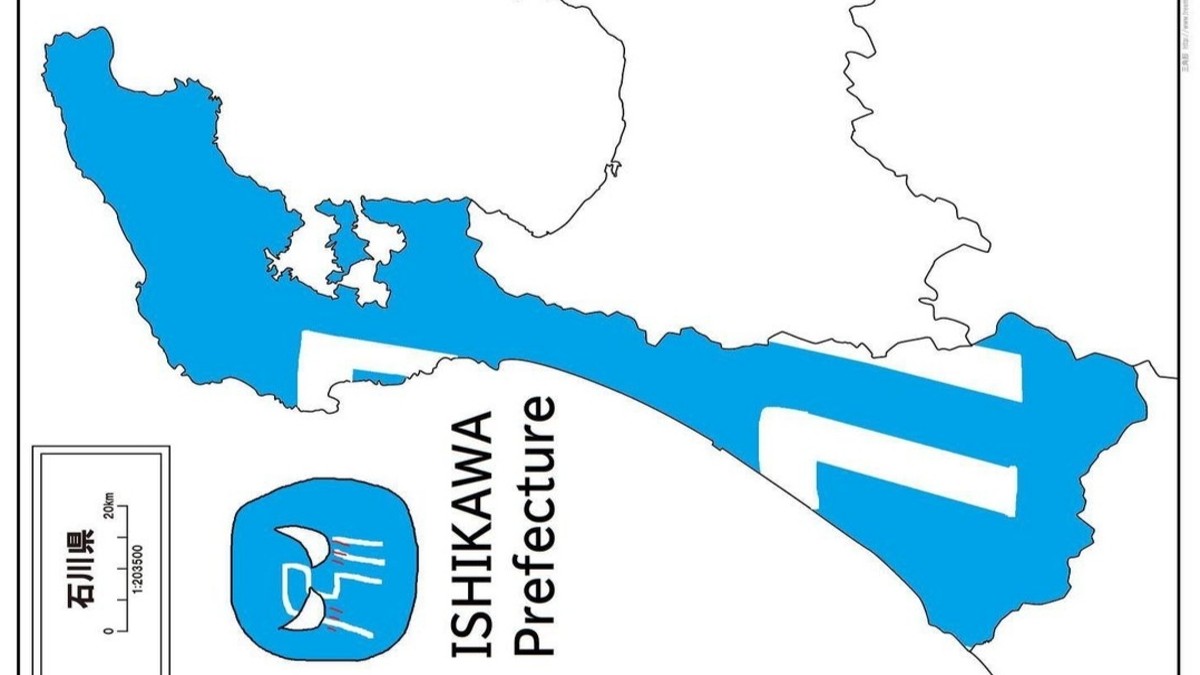Ishikawa Prefecture
Ishikawa Prefecture, in a stunning display of educational excellence, Ishikawa Prefecture has outperformed the national average in all subjects of the recent National Academic Achievement Test. This achievement marks a significant milestone for the region, showcasing the effectiveness of its educational strategies and the dedication of its students and educators.
This article delves into the specifics of the test results, the factors contributing to Ishikawa’s success, and the implications for educational policy and practice in Japan.
Overview of the National Academic Achievement Test
The National Academic Achievement Test, administered annually by Japan’s Ministry of Education, Culture, Sports, Science and Technology (MEXT), assesses the academic proficiency of students in various subjects. The test is designed to evaluate the educational progress of students across the country, providing valuable insights into the strengths and weaknesses of the education system.
The subjects tested typically include Japanese language, mathematics, and science for both elementary and junior high school students. The results offer a comprehensive overview of students’ academic abilities, informing policy decisions and resource allocations aimed at improving educational outcomes.
Ishikawa Prefecture’s Performance
Ishikawa Prefecture’s exceptional performance in the latest test results is noteworthy for several reasons:
- Consistent Excellence: Ishikawa has not only surpassed the national average but has done so consistently across all tested subjects. This indicates a well-rounded and robust education system that prioritizes excellence in multiple areas of learning.
- Significant Margins: The margin by which Ishikawa exceeds the national average is substantial, highlighting the effectiveness of its educational policies and practices.
- Improvement Trends: A longitudinal analysis of the test results shows a consistent upward trend in Ishikawa’s performance, suggesting sustained improvements and successful implementation of educational reforms.
Breakdown of Subject-wise Performance
To understand the factors behind Ishikawa’s success, it’s essential to examine the performance in individual subjects.
- Japanese Language:
- Reading Comprehension: Ishikawa’s students excel in reading comprehension, demonstrating strong analytical and interpretive skills. This is attributed to a curriculum that emphasizes critical thinking and extensive reading practices.
- Writing Skills: The prefecture places a strong emphasis on developing writing skills from an early age, which is reflected in the high scores in essay and composition sections.
- Mathematics:
- Problem-solving Abilities: Ishikawa’s math curriculum focuses on practical problem-solving skills and application of mathematical concepts in real-life situations. This approach has resulted in students performing exceptionally well in complex problem-solving tasks.
- Conceptual Understanding: Students in Ishikawa show a deep understanding of mathematical concepts, indicating effective teaching methods that prioritize comprehension over rote learning.
- Science:
- Experimental Skills: The prefecture’s science education includes hands-on experiments and inquiry-based learning, fostering a strong foundation in scientific principles and methodologies.
- Theoretical Knowledge: Students display a thorough understanding of scientific theories and principles, reflecting a balanced approach to both practical and theoretical aspects of science education.
Factors Contributing to Ishikawa’s Success
Several key factors contribute to Ishikawa Prefecture’s outstanding performance in the National Academic Achievement Test:
- Innovative Educational Policies:
- Curriculum Design: Ishikawa’s curriculum is designed to foster critical thinking, creativity, and problem-solving skills. The emphasis on holistic education ensures that students develop competencies across a broad range of subjects.
- Teacher Training: Continuous professional development for teachers ensures that they are equipped with the latest pedagogical strategies and are able to deliver high-quality instruction.
- Community and Parental Involvement:
- Supportive Environment: Strong community and parental involvement in the education process creates a supportive environment that encourages student engagement and motivation.
- Extracurricular Activities: A wide range of extracurricular activities, including sports, arts, and cultural events, contribute to the overall development of students and provide opportunities for them to apply their academic skills in diverse contexts.
- Resource Allocation:
- Infrastructure: Well-equipped schools with modern facilities and resources provide an optimal learning environment for students.
- Technology Integration: The integration of technology in the classroom enhances learning experiences and provides students with access to a wealth of information and educational tools.
- Focus on Holistic Development:
- Character Education: Programs aimed at character building and social-emotional learning ensure that students develop essential life skills alongside academic knowledge.
- Health and Well-being: Initiatives promoting physical health and mental well-being are integral to Ishikawa’s education system, recognizing the link between student health and academic performance.
Implications for Educational Policy
Ishikawa Prefecture’s success offers valuable lessons for educational policymakers and practitioners:
- Scalable Practices: The strategies and practices implemented in Ishikawa can serve as a model for other regions. Policymakers should consider adopting similar approaches to curriculum design, teacher training, and resource allocation.
- Policy Support: Sustained support from educational authorities is crucial for the successful implementation of innovative practices. Policies that prioritize education and provide adequate funding and resources are essential for replicating Ishikawa’s success.
- Data-driven Decisions: Regular assessment and analysis of academic performance data can inform policy decisions and help identify areas for improvement. Data-driven approaches ensure that interventions are targeted and effective.
- Community Engagement: Encouraging community and parental involvement in education can create a supportive and motivating environment for students. Policies that facilitate collaboration between schools, families, and communities are likely to enhance educational outcomes.
Challenges and Future Directions
Despite Ishikawa’s impressive performance, there are challenges that need to be addressed to sustain and build upon this success:
- Equity and Inclusion: Ensuring that all students, regardless of their socio-economic background, have access to high-quality education is a continuing challenge. Efforts must be made to address disparities and provide support for disadvantaged students.
- Adapting to Change: The rapidly changing educational landscape, driven by technological advancements and shifting societal needs, requires continuous adaptation and innovation. Ishikawa must remain agile and responsive to these changes to maintain its competitive edge.
- Sustaining Motivation: Maintaining high levels of student motivation and engagement is essential for continued success. Schools must explore new and creative ways to keep students interested and invested in their learning.
- Global Competence: Preparing students for a globalized world is increasingly important. Ishikawa’s education system should incorporate global perspectives and competencies to ensure that students are well-prepared for international challenges and opportunities.
Conclusion
Ishikawa Prefecture’s outstanding performance in the National Academic Achievement Test is a testament to the effectiveness of its educational strategies and the dedication of its educators and students. By prioritizing holistic education, innovative teaching practices, and strong community support, Ishikawa has set a benchmark for educational excellence in Japan.
As other regions look to emulate Ishikawa’s success, it is essential to recognize that a one-size-fits-all approach may not be effective. Each region has its unique challenges and contexts that must be considered when implementing new strategies.
Nevertheless, the core principles of Ishikawa’s success—innovative policies, community involvement, resource allocation, and a focus on holistic development—can provide valuable guidance for improving educational outcomes nationwide.
Moving forward, sustained efforts and continuous innovation will be key to maintaining and enhancing Ishikawa’s educational achievements. By addressing challenges and leveraging opportunities, Ishikawa can continue to lead the way in educational excellence, setting an example for regions across Japan and beyond.

















I found this very helpful and will be sharing it with my friends.
I found this article to be very eye-opening. Thanks for sharing.